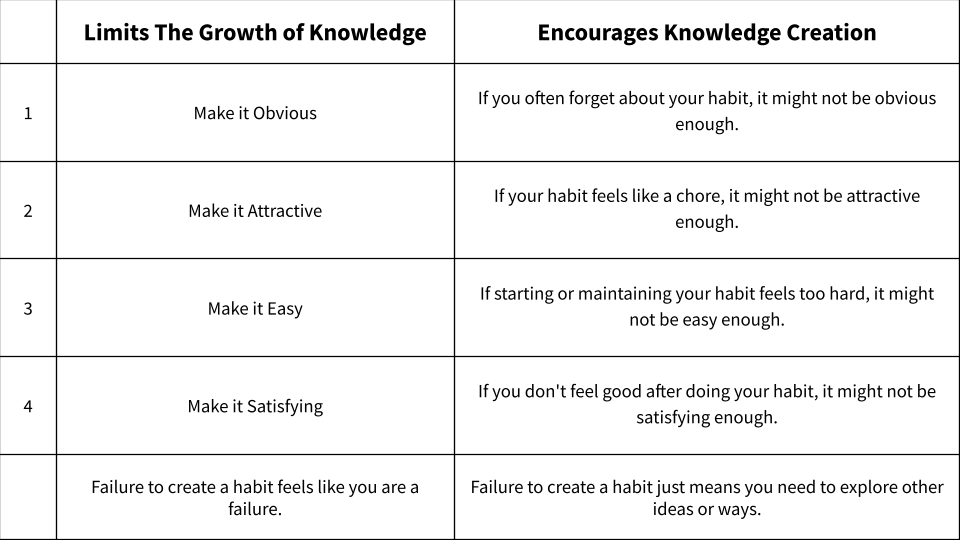35. Beyond 'Just Do It': A New Approach to Self-Help
The self-help genre is a huge failure because it is filled with advice. It became more profit-driven and less helpful over time. The problem with advice is that no one can truly tell you what to do. They can offer suggestions and frame them as one-size-fits-all solutions. These generalizations miss the context of "you". They don't know what it takes for you to become successful in achieving your goals because they don't know you. What if we transformed self-help into something useful? We could avoid the deceptive chases for “quick and easy” yet false solutions.
Take the most popular habit creation book, the best-selling Atomic Habits by James Clear. James lays out four laws of habit creation. They are simple, straightforward, and memorable, but they tell you what to do. What if we changed them from prescriptions to something much more useful?
The Four Criteria of Habit Creation (as opposed to laws)
- Obvious Criterion:
If you often forget about your habit, it might not be obvious enough. Your habit or its reminders could be highly visible and a natural part of your daily routine. - Attractive Criterion:
If your habit feels like a chore, it might not be attractive enough. The activity could be enjoyable or aligned with your values, making you want to do it rather than feeling forced. - Easy Criterion:
If starting or maintaining your habit feels too hard, it might not be easy enough. The steps could be simple and the process manageable, so you can do it almost without thinking. - Satisfying Criterion:
If you don't feel good after doing your habit, it might not be satisfying enough. There could be a sense of achievement or pleasure that comes from the activity, encouraging you to continue.

What we are describing is a shift from prescriptive guidance to a more exploratory, critical thinking approach, which encourages us to develop insights based on our experiences and the challenges we encounter. This method can foster deeper understanding and autonomy. Here we transformed prescriptive methods into a set of evaluative criteria that we use to assess and refine our actions or behaviors. We do not assume our criteria are correct or complete. They are open to improvement. Instead of dictating specific actions to achieve desired outcomes, we are encouraged to identify and analyze points of failure or difficulty as opportunities to generate new, personalized knowledge. This approach relies on the idea that criticism—not in the sense of judgment, but as constructive feedback—is a powerful tool for learning and adaptation. Our goal is to turn each point of failure into a learning opportunity, encouraging a cycle of continuous improvement and personalized learning.
